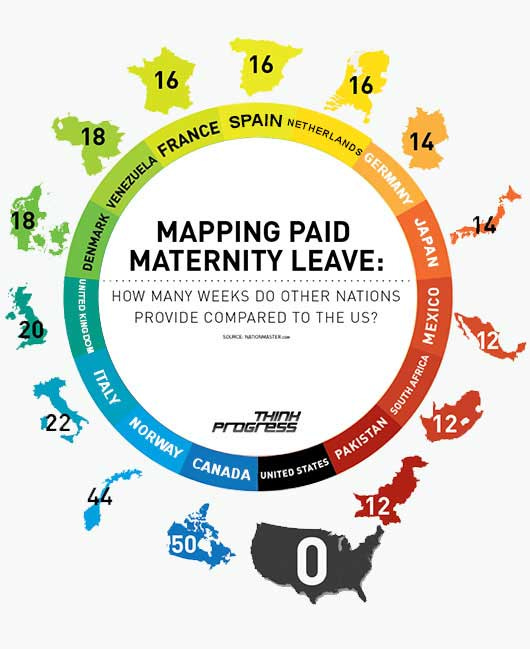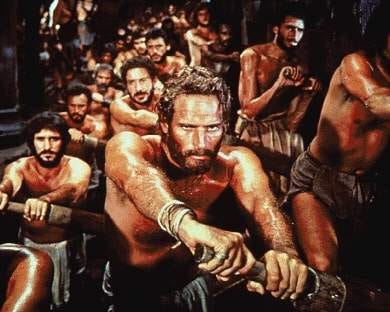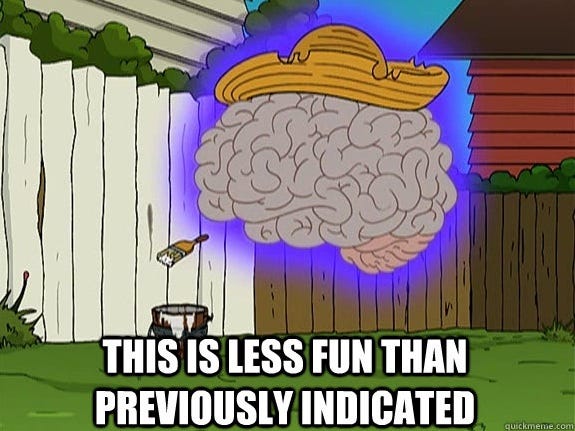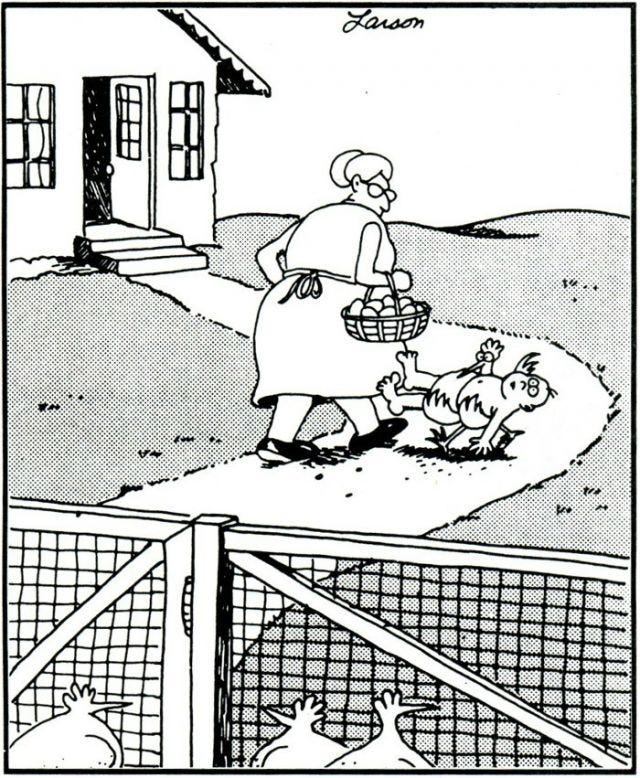So What, Who Cares (vol 2, issue 31) What benchmark shows how Silicon Valley is growing up
Hello! I fell asleep on the keyboard last night, and that is how I learned that I can't write So What, Who Cares? in my dreams. Enjoy this current edition, brought to you courtesy of an 8 p.m. caffeine infusion.
*
Silicon Valley is growing up, and for proof, you only need look at the parental leave policies at the tech giants in the valley.

Despite the bad optics at Yahoo -- i.e. Marissa Meyer making employees' work-life balances a lot more difficult right as she installed a nursery next to her own office -- the company offers 16 weeks of paid maternity leave and 8 weeks of paid time off to fathers and parents of foster, adopted, or surrogate children, plus $500 for baby-related expenses, and $5,000 towards adoption.
Instagram and Reddit reflect the changing expectations of all parents, offering 17 weeks paid leave to any parent, regardless of gender. Change.org offers 18 weeks to every employee who becomes a parent (biological or adoptive), regardless of gender.
Twitter offers 20 weeks of paid maternity leave for birth mothers and 10 paid weeks for paternity leave or adoptive parents. Google offers biological mothers 18 weeks of paid maternity leave (22 if there are complications), and all new parents, including adoptive or surrogate caregivers, regardless of gender, can receive up to 12 weeks of paid baby bonding time. Apple offers four weeks of pre-birth leave -- the only policy I've seen that makes the distinction, and I'd love to know if that's how it accommodates employees on medical bed rest -- and 14 weeks postpartum leave, while fathers or non-biological parents get 6 weeks paid leave.
So what? These paid leave policies show several significant trends at work.

First, it shows that workers are not hesitating to make work-life balance a priority (vol 1, issue 41), and employers are responding to that (vol 1, issue 33). Second, it shows that parental leave is becoming less of a gendered perk as more men step up and shake off the stigma of paternal leave (vol 1, issue 4; vol 2, issue 21). Third, it demonstrates that's it good to be a white-collar salaried worker in a very lucrative industry.
Who cares? Small companies, and the people who work for them.
Note that all of the companies listed in the news summary are big, most of them are at least a decade old, and all and have the operational budgets to maintain generous leave policies. (Note also that "generous" here means "generous by the standards of paid parental leave throughout the U.S.")
Smaller companies lack either the infrastructure or money to handle having an employee out for months at a time. And remember, if a company has fewer than 50 employees in a 75-mile radius, it doesn't even have to comply with the federal Family and Medical Leave Act.
In the current job market, talented workers who want to have a family face a choice: Delay starting their families while they put in time at those small, early-round startups, or go work for one of the big guys and face less financial pressure when they start a family. Right now, having the cash and infrastructure to fund family leave offers big corporations a huge advantage in the talent wars.
Pinterest is reported as having only 12 weeks of paid parental leave. I found this interesting because the com

pany is otherwise very attuned to workplace issues affecting women in the tech sector -- it has a very well-thought-out initiative in place to feed more women into the tech pipeline -- and the comparatively skimpy leave seems incongruous with their focus on keeping women working in tech. The company is barely five years old and has a few hundred employees, so perhaps it's only a matter of time and scale.
Additional reading: J. Crew's creative director Jenna Lyons recently gave the career advice, "I’m going to promote the person who is still there when I leave at 6:30, and is there when I come in the next morning, and instead of going home says, 'Can I do anything else?'" What was interesting was reading the pushback against this sentiment in the comments, especially from people who drew a distinction between working longer and working well (vol 2, issue 24).
*

If you want to become a more awesome version of yourself -- I hasten to add that you don't need to, because your very subscription to this newsletter suggests you're clearly at your pinnacle -- buuuuuuut if you really want to up your "You do you" game, there are two things you can start.
First: Reframe procrastination. You're not putting something off until later, you're choosing to treat yourself poorly, with time-delayed consequences. Timothy Pychyl, a psychologist at Carleton University, says of procrastinators:
Disregard for their future selves often leads people to cram their calendars with appointments. This allows them to take the neurochemical hit of pleasure that comes from scheduling something today — and to suffer the consequences of five back-to-back meetings next month.
So start thinking of your future self as the you who's in the now, and start consciously thinking of the consequences Future You will have for the decisions you make today.
Second: Figure out how to make a new habit and stick to it. A rising tide of research shows that people who have habits are typically happier, healthier and more productive. That research also shows that there's no one-size-fits-all way to develop and maintain a healthy habit. Gretchen Rubin identifies four broad personality categories and suggests that knowing what type of person you are can help you figure out the best way to form a healthy habit:
There are “upholders,” such as Rubin herself; she wakes up to a to-do list, knows any expectations of her—whether from other people or herself—and avoids letting anyone down. There are “obligers,” who are motivated by external accountability. “Questioners” respond to expectations, if they make sense based on their own judgement, and “rebels” resist control, even self-control.

So what? Who doesn't want to make their brain work better for them? We've reviewed how to improve our resiliency by reframing stressful setbacks (vol 1, issue 13), taking a walk jump-starts your brain (vol 1, issue 15), how doodling and knitting can help reinforce the link between fine motor skills and complex cognitive processing (vol 1, issue 15), how our brains are wired (or not) for risk (vol 1, issue 45), and how acting generous can boost both your mood and your life expectancy (vol 1, issue 46). These are just two more ways being mindful can improve your daily life.
Who cares? Anyone who's trying to clear a little mental clutter in their lives. I will cop to being a perfectionist-procrastinator, and reframing delays with "Future Me will thank me!" both cracks me up and shakes me out of the delaying tactics. I have even emailed or texted friends with "I love Past Me!" when something works out. Try it! It's amusing, if nothing else.
*
Today's moment in pop culture: March is the month where we ponder the beauty of the bracket. Let's all take a moment and think about the innate excitement that comes from watching bout after bout progress -- some predictably, some with surprises -- until you're down to the final two.
In that spirit, I'll be finding you some of the best brackets the Internet has to offer this month. But first, a trip down memory lane ...

Last March, when The Wire was a quasi-independent site and not folded back into The Atlantic, the writers and editors put together a month of brackets. My personal favorite is the bracket of chicken, even though the winner just didn't have the legs to go beyond the first round of the bracket of brackets. Enjoy wasting time on the many, many brackets devised.
And if you want to look at how to discern the best of everything, pick up a copy of The Enlightened Bracketologist (there are a lot of used copies available for a song), where experts in their fields walk you through the match-ups that produce answers to questions like "Who is the most amusing sidekick?" to "What's the best investment strategy?"
*
Did you miss an issue of So What, Who Cares? The archive is here. Are there typos? I apologize in advance.
As always, I welcome your feedback and suggestions -- you can reach me by Twitter or email. Please do not hesitate to let me know what you think about So What, Who Cares, or suggest links/topics/pop culture that rings your bell.
If you really like it, tell a friend to subscribe.

